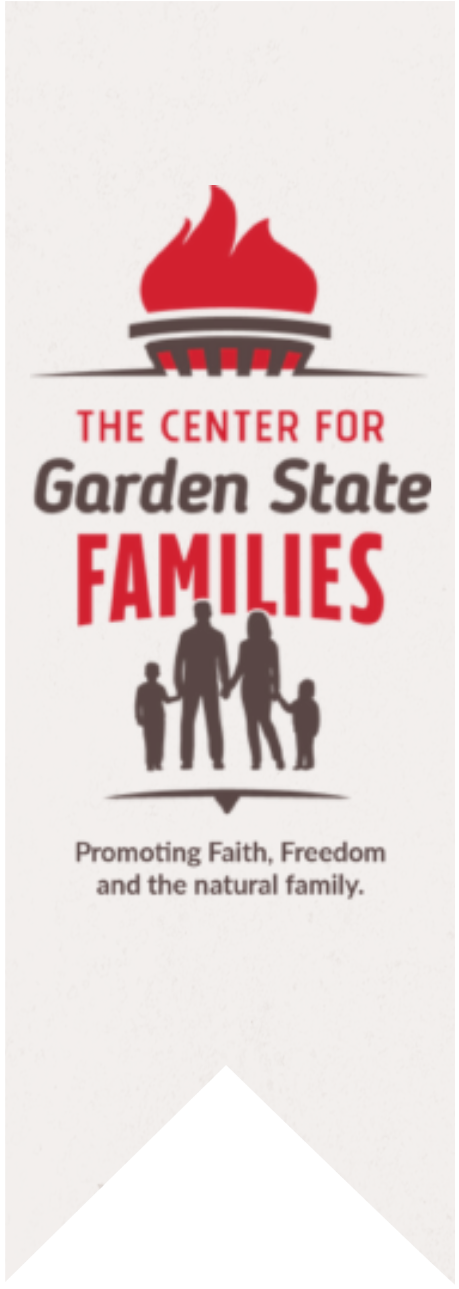“When is there time to teach necessary academics when the woke mob has taken over every aspect of taxpayer-funded public education?”
– Anonymous New Jersey public schoolteacher
According to the New Jersey Public Schools Fact Sheet 2022-2023, there are 593 operating school districts in New Jersey, 85 charter schools, 3 “renaissance” schools, and 16 non-operating school districts. Together, they spend nearly $10 billion a year in “state aid” – mostly from state income taxes. We are not discussing property taxes here.
Most of these school districts – “more than 570” of them – get their school district policies from the same source. It’s from a law firm in southern New Jersey that’s headed by a retired school superintendent. This single firm has a near monopoly on interpreting government regulations and developing policies that nearly every school district in the state ends up implementing. That’s why the “district policy” sections of most school district websites in New Jersey are so similar – almost identical. They are the work of the same institutional mind.
A great deal impacts these policies – and it’s often contradictory. There’s a lot of room for interpretation, a lot of grays, given all the various agencies (state and federal), the Legislature, the State Board of Education, the Governor, and various levels of the judiciary. From this, policy is created – generally a broad version along with a more detailed version – and it is adopted, pretty much on faith, by the state’s school boards, as the recommendation of their “policy consultant.”
Go to the policy section of any school district website and you will see the same lay-out, the same language. For example, there are 25 separate mandates listed under Policy 2422 (COMPREHENSIVE HEALTH AND PHYSICAL EDUCATION). The policy begins…
The Board of Education requires all students to participate in a comprehensive, sequential, health and physical education program aligned with the New Jersey Student Learning Standards (NJSLS) that emphasizes the natural interdisciplinary connection between wellness and health and physical education. The primary focus of the NJSLS is the development of knowledge and skills that influence healthy behaviors within the context of self, family, school, and the local and global community.
The curriculum requirements listed below address the need for students to gain knowledge and skill in caring for themselves, interacting effectively with others, and analyzing the impact of choices and consequences. The primary focus of the curriculum listed below is to help students develop concepts and skills that promote and influence healthy behaviors.
Note that this policy is about promoting and influencing certain behaviors that the state has decided are “healthy”. Some are straightforward, while others are merely a departure point for some broader ideological discussion aimed at promoting and influencing behavior. Mind you, this list is incomplete.
For example, New Jersey education standards now require public school students to learn another subject: climate change. The state is the first in the country to “infuse” climate change into the curriculum at every grade level. To “promote and influence” behaviors like advocating for clean energy and protecting the state’s beaches – but not its sea mammals, apparently. And added to that, Governor Murphy recently signed a “disinformation” mandate into law and a “grief counseling” mandate is making its way through the Legislature…
The NJSLS incorporate New Jersey statutes related to health and well-being of students in New Jersey schools. The following statutes incorporated into the NJSLS include, but are not limited to, the following requirements:
1. Accident and Fire Prevention (N.J.S.A. 18A:6-2) requires regular courses of instruction in accident and fire prevention.
2. Breast Self-Examination (N.J.S.A. 18A:35-5.4) requires offering instruction on breast self-examination for students in grades seven through twelve.
3. Bullying Prevention Programs (N.J.S.A. 18A:37-17) requires the establishment of bullying prevention programs.
4. Cancer Awareness (N.J.S.A. 18A:40-33) requires the development of a school program on cancer awareness by the Commissioner of Education.
5. Dating Violence Education (N.J.S.A. 18A:35-4.23a) requires instruction regarding dating violence in grades seven through twelve.
6. Domestic Violence Education (N.J.S.A. 18A:35-4.23) allows instruction on problems related to domestic violence and child abuse.
7. Gang Violence Prevention (N.J.S.A. 18A:35-4.26) requires instruction in gang violence prevention for elementary school students.
8. Health, Safety, and Physical Education (N.J.S.A. 18A:35-5) requires that all students in grades one through twelve participate in at least two and one-half hours of health, safety, and physical education each school week.
9. Drugs, Alcohol, Tobacco, Controlled Dangerous Substances, and Anabolic Steroids (N.J.S.A. 18A:40A-1) requires instructional programs on drugs, alcohol, anabolic steroids, tobacco, and controlled dangerous substances and the development of curriculum guidelines for each grade Kindergarten through twelve.
10. Lyme Disease Prevention (N.J.S.A. 18A:35-5.1 through 5.3) requires the development of Lyme Disease curriculum guidelines and training to all teaching staff members who instruct students with Lyme Disease.
11. Organ Donation (N.J.S.A. 18A:7F-4.3) requires information relative to organ donation to be given to students in grades nine through twelve.
12. Sexual Assault Prevention (N.J.S.A. 18A:35-4.3) requires the development of a sexual assault prevention education program by the Commissioner of Education for utilization by school districts.
13. Stress Abstinence (N.J.S.A. 18A:35-4.19 through N.J.S.A. 18A:35-4.22), also known as the “AIDS Prevention Act of 1999,” requires sex education programs to stress abstinence.
14. Suicide Prevention (N.J.S.A. 18A:6-111 through 113) requires instruction in suicide prevention in public schools.
15. Cardiopulmonary Resuscitation (CPR)/Automated External Defibrillator (AED) (N.J.S.A. 18A:35-4.28 and 18A:35-4.29) requires public high schools and charter schools to provide instruction in cardiopulmonary resuscitation and the use of an automated external defibrillator to each student prior to graduation.
16. Sexually Explicit Images through Electronic Means (N.J.S.A. 18A:35-4.32 and 4.33) requires instruction, once during middle school, on the social, emotional, and legal consequences of distributing and soliciting sexually explicit images through electronic means.
17. History of Disabled and LGBT Persons (N.J.S.A. 18A:35-4.35 and 4.36) requires instruction on the political, economic, and social contributions of persons with disabilities and lesbian, gay, bisexual, and transgender people for middle and high school students.
18. Financial Literacy (N.J.S.A. 18A:35-4.34) requires instruction with basic financial literacy necessary for sound financial decision-making in each of the grades six through eight.
19. Sexual Abuse and Assault Awareness and Prevention Education (N.J.S.A. 18A:35-4.5a) requires age-appropriate sexual abuse and assault awareness and prevention education in grades preschool through twelve.
20. Curriculum to Include Instruction on Diversity and Inclusion (N.J.S.A. 18A:35-4.36a) requires instruction on diversity and inclusion in an appropriate place in the curriculum for students in grades Kindergarten through twelve.
21. Incorporation of Age-Appropriate Instruction Relative to Consent for Physical Contact and Sexual Activity (N.J.S.A. 18A:35-4.38) requires age-appropriate instruction in grades six through twelve on the law and meaning of consent for physical contact and sexual activity.
22. Health Curriculum to Include Instruction on Mental Health (N.J.S.A. 18A:35-4.39) requires health education programs to include instruction on mental health and the relation of physical and mental health for students in grades Kindergarten through twelve.
23. Information About “New Jersey Safe Haven Infant Protection Act” Included in Public School Curriculum (N.J.S.A. 18A:35-4.40) information on the provisions of the “New Jersey Safe Haven Infant Protection Act” shall be included in curriculum for public school students in grades nine through twelve.
24. Infusion of African American Accomplishments into School Curricula (N.J.S.A. 18A:35-4.43) requires in the curriculum for all elementary and secondary students instruction that infuses into all courses on the United States the centuries of accomplishments by African Americans in the building and development of America.
25. Other Statutory or Administrative Codes. The Board will incorporate into its health and physical education curriculum any other requirements of the NJSLS in Comprehensive Health and Physical Education.
And there’s also this paragraph from Policy 2422:
Restorative justice activities are defined as activities designed to improve the socioemotional and behavioral responses of students through the use of more appropriate and less punitive interventions thereby establishing a more supportive and inclusive school culture.
Of course, the phrase “restorative justice” is an ideological one, dating back to the 1970s and the theories of Marxist academic Angela Davis. An ardent supporter of the Soviet Union and winner of the Lenin Peace Prize, Davis was the Communist Party USA’s candidate for Vice President… twice.
“Restorative justice” is on the lips of every George Soros supported prosecutor in America. And it has been rejected even in cities like San Francisco and Baltimore. In response to its failure and the rise of violent crime,12 Soros-backed prosecutors have been defeated or pushed out in the last year. But in school districts across New Jersey, “restorative justice” is part of an official “policy” to “promote and influence”.
We have highlighted (in red) the more notable departure points in the state’s efforts to “promote and influence” an ideological perspective. Now, let’s move on to examine this lengthy list of mandates from the aspect of time.
New Jersey is big on mandates, but not on mandating the time those mandates require. According to the National Center for Education Statistics, New Jersey is one of the few states that does not set a minimum number of instructional hours per year. The state also sets a very low minimum number of hours of school instruction per day: 4 hours (Grades 1 through 12). New Jersey’s minimum number of school instruction days – 180 – is basically standard across the United States.
The state’s ideological special interests, politicians and its education establishment appear to be cramming more and more mandates into a very narrow window of time. With low state minimums, the state is leaving it to local school boards to expand the school day to something bordering on an 8-hour workday – not counting homework. Is this sustainable? At what point will mandated ideological indoctrination overtake those core subjects needed to negotiate a living in a complex and difficult world?
Enlightened school boards and parents have a job to do.

